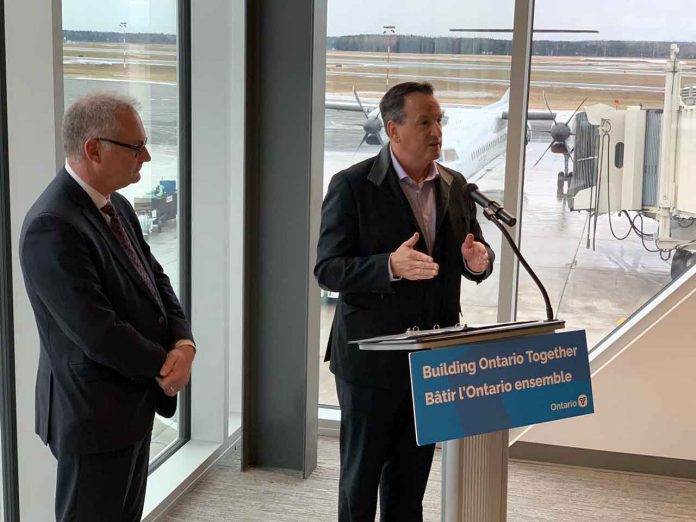THUNDER BAY — The Ontario government is delivering on its commitment to reduce the aviation fuel tax rate in Northern Ontario, helping to lower the cost of living for people in the region.
Today, Greg Rickford, Minister of Energy, Northern Development and Mines and Minister of Indigenous Affairs, spoke about the government’s plan to make life more affordable for northerners at the Thunder Bay International Airport.
As announced in the 2019 Ontario Economic Outlook and Fiscal Review: A Plan to Build Ontario Together, the government is proposing to cut the aviation fuel tax rate in the North to 2.7 cents per litre from 6.7 cents per litre.
“Living and working in Northern Ontario comes with higher costs of living as we rely on air travel and freight to provide essential goods and services,” said Minister Rickford. “That is why our government is proud to help reduce costs in this region by cutting the aviation fuel tax rate.”
The lower aviation fuel tax rate would help reduce costs on things like groceries and air travel. This reduced rate would apply to aviation fuel purchases in the North as of January 1, 2020.
“Our government has heard loud and clear that people from all walks of life – especially those who live in Northern Ontario – are tired of paying more and getting less,” said Minister Rickford. “That is why we have a plan to make life more affordable for families and individuals in every corner of the province.”
The government’s balanced and prudent plan to build Ontario together is creating more jobs, putting more money in people’s pockets, making our communities healthy, our streets safe, our commutes shorter and our government smarter.
QUICK FACTS
- The reduced aviation fuel tax rate would apply to the districts of Algoma, Cochrane, Kenora, Manitoulin, Nipissing, Parry Sound, Rainy River, Sudbury, Thunder Bay, and Timiskaming.
- Buying groceries for a family of four in the North could cost about $980 per month or more. This proposed tax rate reduction could save this family about $230 per year.
- Example: someone who lives in Thunder Bay, travels to Red Lake every month would save about $135 per year on travel.






